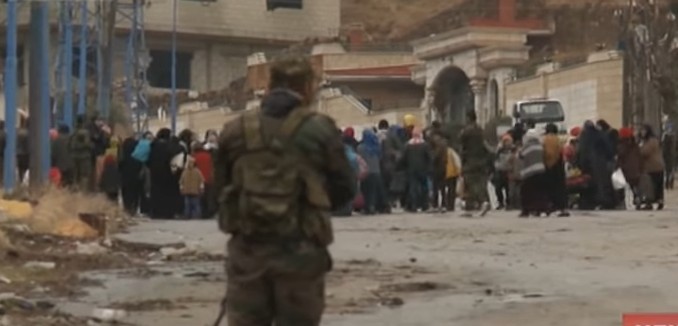The removal of sanctions on Iran, “part of which will lead to a great deal more weaponry, conflict, bloodshed, and death throughout this area,” marks a “dark day” for the Middle East, Avi Issacharoff, the Middle East analyst for The Times of Israel, wrote in an op-ed Sunday.
After noting the mass starvation in the Syrian city of Madaya, which is besieged by the Iran-backed forces of Hezbollah and the Assad regime, Issacharoff pointed out that “about 250,000 people have been killed in the Syrian civil war, the vast majority of them by Assad’s Iran-assisted forces.”
Issacharoff observed that ISIS is spending money and resources to project itself “as a force of absolute evil,” and that Iran has benefited from this by appearing, in comparison, “relatively pragmatic, an entity with which one can negotiate.” But the siege of Madaya, and the carnage throughout Syria, are reminders “about the true face of the Iranian regime.”
Issacharoff added:
A glance at the numerous areas of conflict in our region underlines Iran’s ubiquitous involvement in the bloodshed — everywhere from Yemen, to Iraq, to Syria, Lebanon, and even the Gaza Strip. …
Apart from Iran’s citizens, of course, those who are about to benefit from the lifting of sanctions on Iran include: Hezbollah, which already has some 150,000 rockets and missiles of various ranges and accuracy, and which is now set to receive much-increased financial assistance from Iran; the popular militias in Iraq; the Houthis in Yemen; and Hamas in Gaza (as well as Islamic Jihad there, should Iran feel so inclined).
For relatively moderate Sunni states, this a grim day, indeed — a day on which Iran is welcomed back to the international community and is simultaneously assisted in deepening its capacity to back terrorist and destabilizing forces in those Sunni states and beyond.
Issacharoff concluded by observing that while Iran might not be able to develop a plutonium-based weapon due to the deal, the lifting of sanctions “will only exacerbate Shiite terrorism, and it won’t do anything for the starving people of Madaya.”
Issacharoff has frequently reported about the threats that Iran-backed terror organizations pose to Israel from both its northern and southern borders. He has described the “close cooperation” between Iran-backed Hamas and ISIS’ affiliate in the Sinai Peninsula, as well as Iran’s continued and growing support of Hezbollah.
In September, Issacharoff reported that Iran had already increased its funding of both Hamas and Hezbollah in anticipation of the billions it would be receiving in sanctions relief. The previous month, Iranian Foreign Minister Mohammad Javad Zarif told Hezbollah chief Hassan Nasrallah that the nuclear deal would present a “historic opportunity” to confront Israel.
A senior Iranian official boasted in November 2014, after the Iran-backed Houthi rebels captured the Yemeni capital of Sana’a, that the Islamic Republic had captured its fourth Arab capital. The other three were said to be Beirut, Damascus, and Baghdad, capitals of countries now controlled by Iranian allies or militias.
[Photo: CCTV News / YouTube ]




